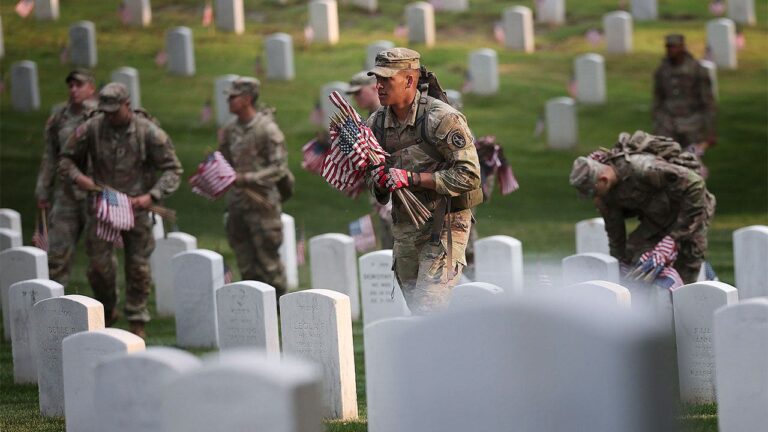newYou can listen to the Fox News article!
This weekend, Americans observed Memorial Day, a day to remember those who sacrificed their lives in defense of their country.
Though this federal holiday was officially established in 1968, this national day of mourning dates back to the Civil War more than 160 years ago, when a grieving nation sought to honor the many brave soldiers who died in that bloody conflict, including Sergeant Joseph Allen Frith.
Frith was a handsome, 23-year-old, gray-eyed farmer who enlisted in Lincoln’s special unit, the Richard Blazer Scouts, from the 34th Ohio Volunteer Infantry. His fellow soldiers described him as “always ready for anything and always in good spirits.” He also had many friends, a sign of the esprit and unity within the unit.
Sergeant Joseph Allen Frith was fatally wounded in the back by an untrained young Union soldier during the Civil War. (Author’s photo, courtesy of Art Frith)
Lincoln’s Special Forces not only led Union troops on battlefield reconnaissance, but also tracked down the South’s most dangerous men, forming one of the U.S. Army’s first hunter-killer teams. To hunt their prey, Confederate guerilla leader John Singleton Mosby and his rangers, Union scouts donned Confederate butternut uniforms and engaged in irregular combat.
Three things I want my kids to know on our anniversary
One summer day in June 1864, Frith and his fellow scouts stumbled upon a band of Confederate troops. A fierce mounted gunfight ensued, leaving soldiers on both sides wounded and killed before the Confederates fled.
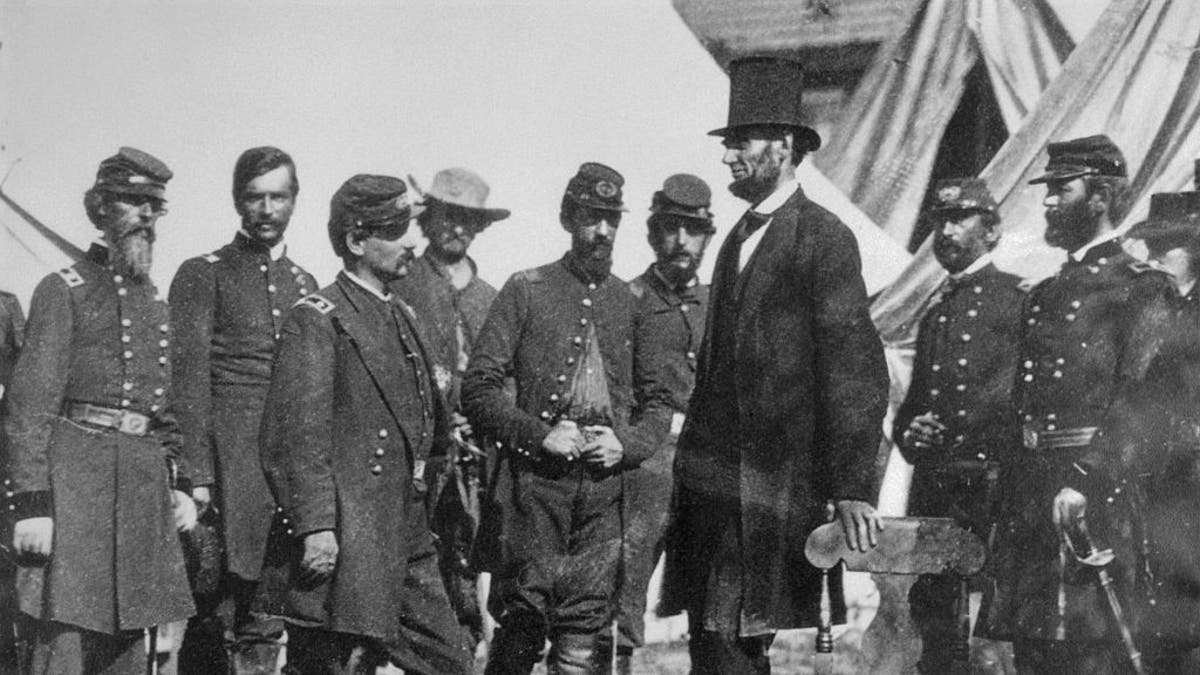
President Abraham Lincoln and Gen. George B. McClellan (third from left) at their headquarters at Antietam, October 3, 1862. (Getty Images)
Frith was fatally wounded in the back by a young, untrained Union fellow soldier, a clerk with no “business” riding with the scouts, who had carelessly “held a revolver in his hand, and was directly behind Joe. As his horse stumbled and fell, the revolver fired. The bullet entered poor Joe’s back and exited through his lower abdomen.”
In a letter informing Frith’s father of his death, a fellow scout said Frith “had spoken often of his mother and wanted her to know that he had died like a soldier.”
Memorial Day 2023: Note written on a white stone cross
The following evening, at a nearby farmhouse owned by a Mrs. Dixon in Covington, Virginia, despite the surgeon’s treatment, “at seven o’clock he lay on his side with his arms folded across his chest and seemed to fall asleep; he had fallen asleep.”
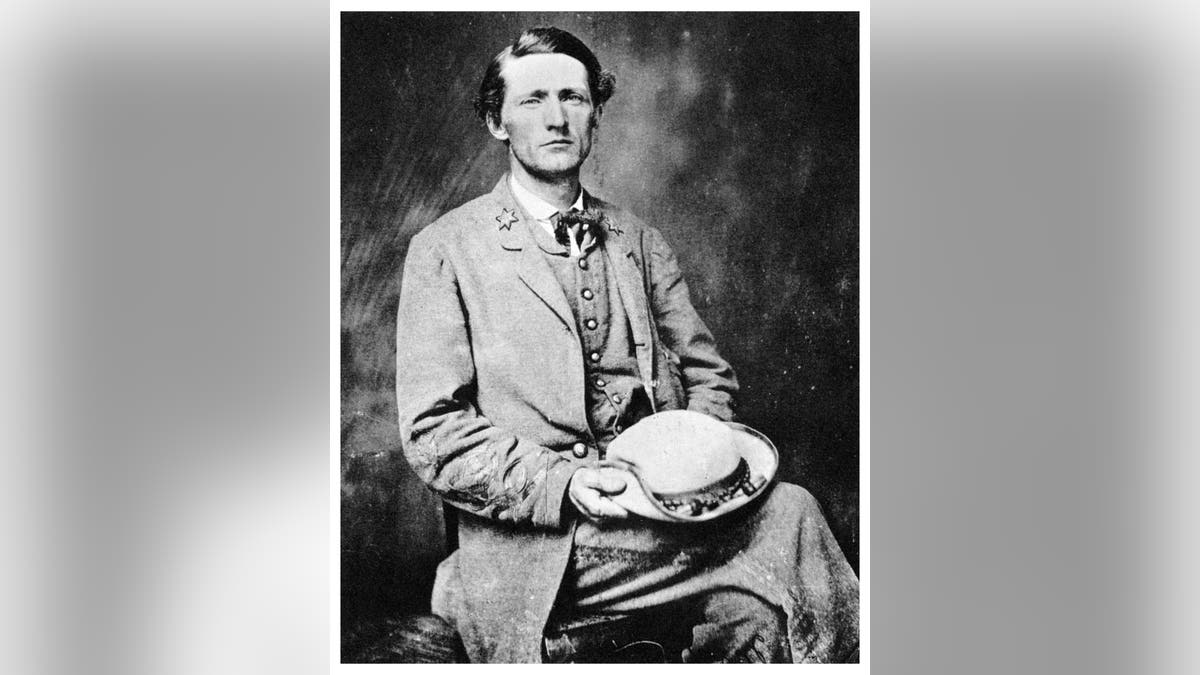
Colonel John Singleton Mosby commanded the famous “Mosby Rangers” during the Civil War. (The Print Collector/Print Collector/Getty Images)
Frith’s previously untold story, along with the remarkable stories of the many secret warriors who fought bravely in the Civil War, is told in my new bestselling book, The Unvanquished. The book reveals the drama of irregular guerilla warfare that changed the course of the Civil War, including the story of Lincoln’s special forces, dressed in Confederate uniforms, who pursued Mosby and his Confederate Rangers from 1863 until the war’s end at Appomattox. These soldiers inspired the creation of U.S. special operations in World War II.
I truly understood the meaning of Memorial Day when I became part of this Gold Star family.
Joseph Frith’s body was buried behind the Dixon home “with soldierly honours… in as good a condition as circumstances would permit”. Like so many of his fellow secret warriors who left home to defend their country and never returned, Frith’s grave is sadly unknown. “Poor Joe. His death leaves a vacancy in his regiment that can never be filled… I do not think there was ever a man in the regiment who was more fortunate with friends, or whose death will be more greatly missed.”
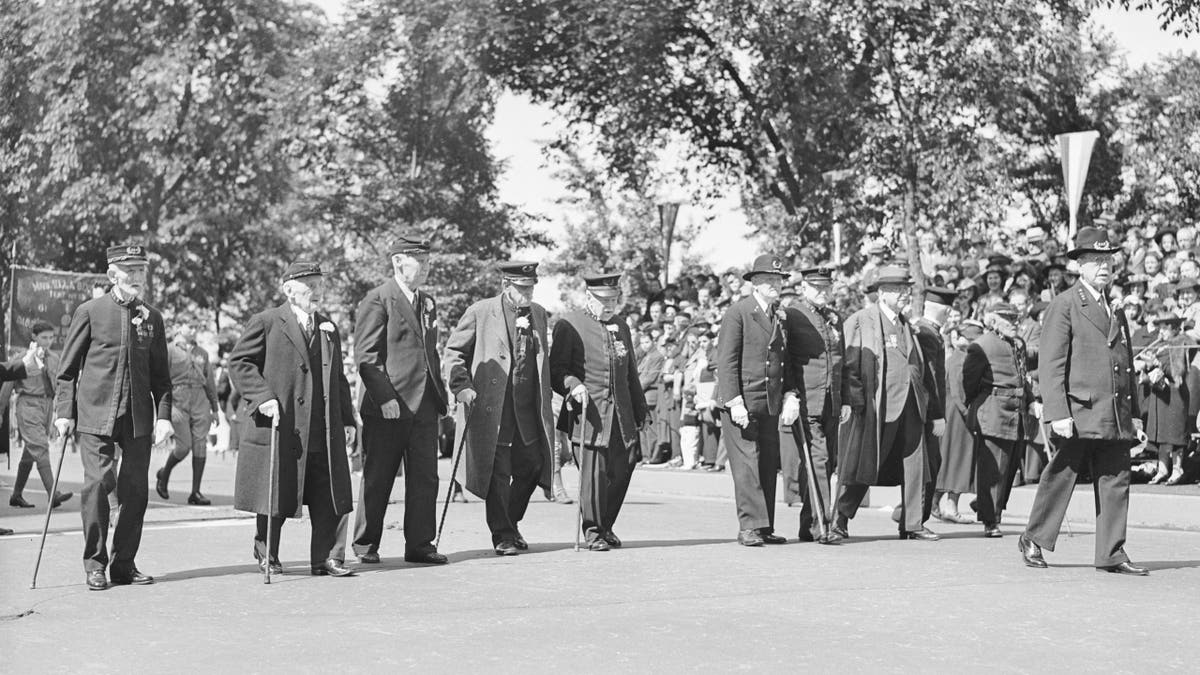
Civil War veterans march during the Republic Day Parade in New York City on May 30, 1938. (Getty Images)
The author is continuing efforts to locate Sergeant Frith’s burial site, anyone with information is asked to contact him. translator.
While the exact origins of Memorial Day are debated, the tradition of scattering flowers on the graves of fallen soldiers to honor their sacrifice and their memory began in both the North and South shortly after the end of the Civil War. In the South, women in particular, particularly the Women’s Memorial Association of Columbus, Georgia, sought to honor and commemorate the fallen soldiers on what became known as Decoration Day.
Click here to read more FOX News Opinion
In the North, veterans took the lead, with one veterans’ organization, the Grand Army of the Republic, stating that the practice “should be continued annually so long as the survivors of the war are living to honor the memory of their fallen comrades.”
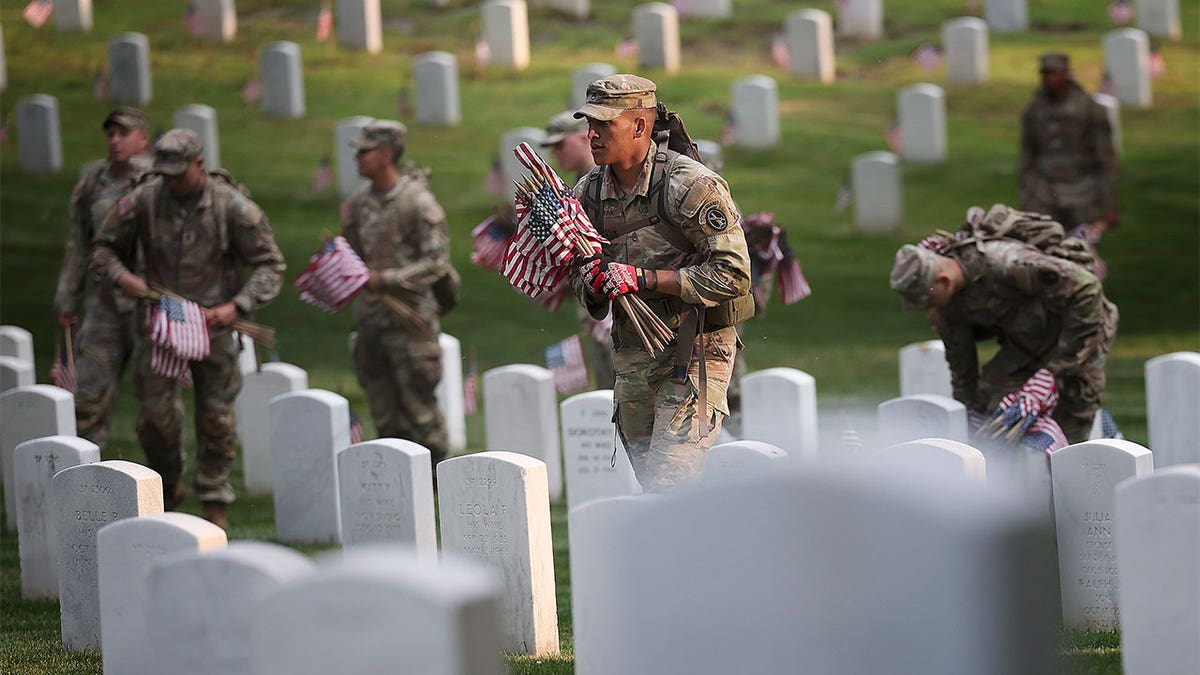
On Memorial Day, May 25, 2023, service members place flags next to headstones at Arlington National Cemetery in Virginia. (Win McNamee/Getty Images)
After World War I, the practice was expanded to honor all American veterans who lost their lives in combat, and today in some places it includes all deceased veterans.
Reflecting on the death of his second son, Joseph, during the war, Frith’s father penned these powerful words to a childhood friend, a soldier, in a letter published in a local newspaper:
Click here to get the FOX News app
“By his pure and unselfish life he taught you how to live, and by his calmness at the moment of death he left an example of how to die.”
It’s good to keep this in mind.
To read more articles by Patrick K. O’Donnell click here


